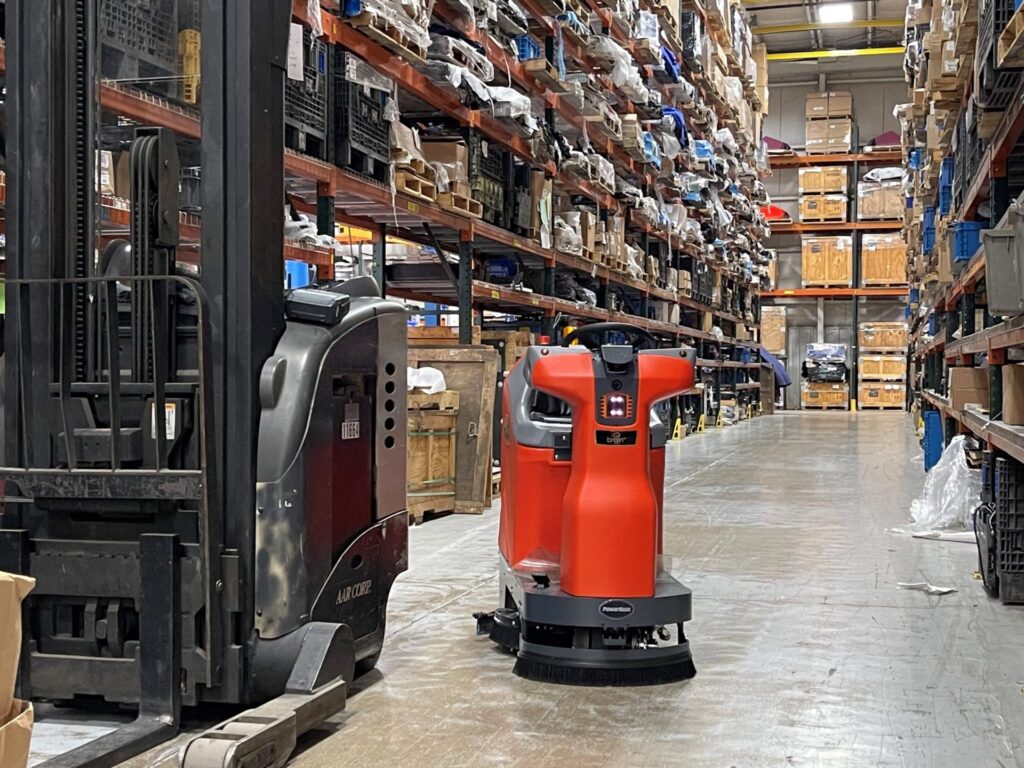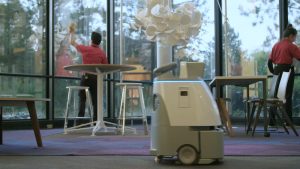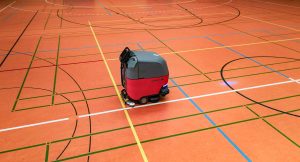Creating an autonomous cleaning strategy.

Autonomous cleaning offers cleaning contractors an opportunity to deliver innovative and improved levels of servicing that is expected of businesses in the wake of the Covid pandemic.
Cobotics are here to stay and are likely to become the key difference between FM providers and cleaning contractors merely surviving or thriving according to leading experts.
Companies starting on their autonomous cleaning journey should be in no doubt that the introduction of cobots into their operations requires careful planning and a robust, holistic strategy to ensure a smooth and seamless rollout.
Taking time to develop a robust plan and to secure buy-in from all parts of the business will ensure a more seamless introduction of autonomous machines, which will in turn start to reap the benefits sooner. Avoid the temptation of rushing the planning phase and start placing cobots into cleaning teams as this isn’t sustainable. Introducing autonomous cleaning is a journey that won’t be successful if you try to do it alone.
The autonomous strategy maps out a plan for the smooth introduction of cobots into cleaning operations, from the initial survey through to ongoing deployment and scaling. It should include clear and measurable objectives, with key targets and milestones along the way, identify key stakeholders, directly address potential barriers, and establish clear lines of communication and ownership.
To ensure a smooth and seamless rollout, your autonomous cleaning strategy should include:
- Technology integration.
- New operating and resourcing models.
- Training and upskilling.
- Cultural and behavioural change.
- Impact on clients and service delivery.
- New financial models.
- Measurement and evaluation.
Those spearheading the introduction of autonomous cleaning need to engage with a wide range of stakeholders from across the business, to educate them around cobotics and get buy-in for these initiatives at the outset.
This means collaborating with colleagues in finance, HR, and IT, and with the senior leadership team. It also means engaging with clients and workforce representatives to ensure that they understand the benefits and are supportive of the programme.
It’s also vitally important to consult with on-site facility managers and cleaning team managers during the planning phase to think through the impact on resource scheduling and team rotas. This avoids potential problems and wasted capacity further down the line.
Cobotic leaders should look to their technology partners to help them form a strategy which covers all aspects of cobotics to generate internal and external support and ensure the project runs smoothly, on time and delivers against specific KPIs.
Proof of Concept
Give stakeholders a good understanding of the benefits autonomous cleaning as well as the technology. This will also help identify any potential issues or unforeseen barriers that can be overcome before the roll-out. In practical terms, identify one or two areas within your regular cleaning operations and team members that are willing to adapt, embrace change and willing to embark on a new cleaning journey / concept. Then introduce cobots over the course of one month to prove how effective the machines are to your team.
Fail fast, learn faster!
Adopting a ‘Fail Fast’ approach will allow you to learn more quickly and, ultimately, to start to reap the full benefits of cobotics far sooner. Try scenario-based testing, looking at how deploying cobots within different teams and at different times impacts overall performance. Create feed-back loops so that learnings and ideas can be shared from the bottom to the top of the organisation and factored into future plans. Build a culture of continual learning where you are continually looking to test new ways in which cobotics can drive efficiencies and performance, enhance employee wellbeing and improve client servicing levels.
Tailor communications
Develop an ongoing communications plan which educates, reassures and inspires stakeholders, tailored for each group, sensitive to and addressing their own specific concerns and drivers. Frontline staff will want to know how the introduction of autonomous machines will impact their day-to-day working practices and that it won’t put their jobs at risk. They’ll also be interested in the benefits for them – less time doing repetitive and strenuous tasks, more varied work, an opportunity to learn new skills and manage cutting edge technology.
Clients will want reassurances that the introduction of cobotics will not result in any disruption to normal operations or drop off in standards. They will be eager to hear how cobots will improve consistency in cleaning and to free up resource to focus on enhanced service delivery – and also to increase the comfort factor to allow their own employees back into the workplace.
Make upskilling a priority.
FM providers and cleaning contractors need to deliver a comprehensive upskilling programme to demonstrate their long-term commitment to cleaning staff and present an exciting vision of the future, where cleaning professionals manage cutting edge AI-driven cobots.
Training needs to encompass both technical skills – how to programme, monitor and manage cobots on a daily basis – and broader education around the role of cobots within the workforce, to ensure frontline staff have the understanding and right behaviours to work in a hybrid human-cobot cleaning team.
Create ambassadors.
An ambassador programme can be extremely powerful in winning over hearts and minds, building the engagement and enthusiasm that makes such a difference to the overall success of an innovation programme.
Ambassadors or champions should be frontline cleaning staff and team supervisors who are working alongside cobots on a daily basis and are reaping the benefits. Create a small group of ambassadors which best reflects the full diversity of the cleaning workforce. And ideally, these individuals should be well-respected within their teams and happy to share their views publicly.
The introduction of cobotics, the collaboration between frontline workers and machines or robots, has widely been acknowledged as a potential game changer within FM and commercial cleaning. Its how companies adopt to these changes that will determine who the overall winner will be.
For information on any of the Hako Machines range call 01788 825600 or email enquiries@hako.co.uk
-
Recent Posts
- 24Jul City of London praises all-electric Citymaster ZE
- 3Jul Nurturing future champions: The importance of supporting youngsters in sports
- 26Jun Maximising Machinery Performance: The vital role of OEM Parts
- 24Jun Aron Taylor-Smith Secures Podium and Double Independent Wins at Oulton Park
- 11Jun Resilience rewards Taylor-Smith with Independents hat-trick at Thruxton
News Categories
- Awards (10)
- BTCC (6)
- Charity (7)
- Exhibitions (10)
- News (109)
- Other (31)
- Press releases (42)
- Product News (31)
- Uncategorized (7)




